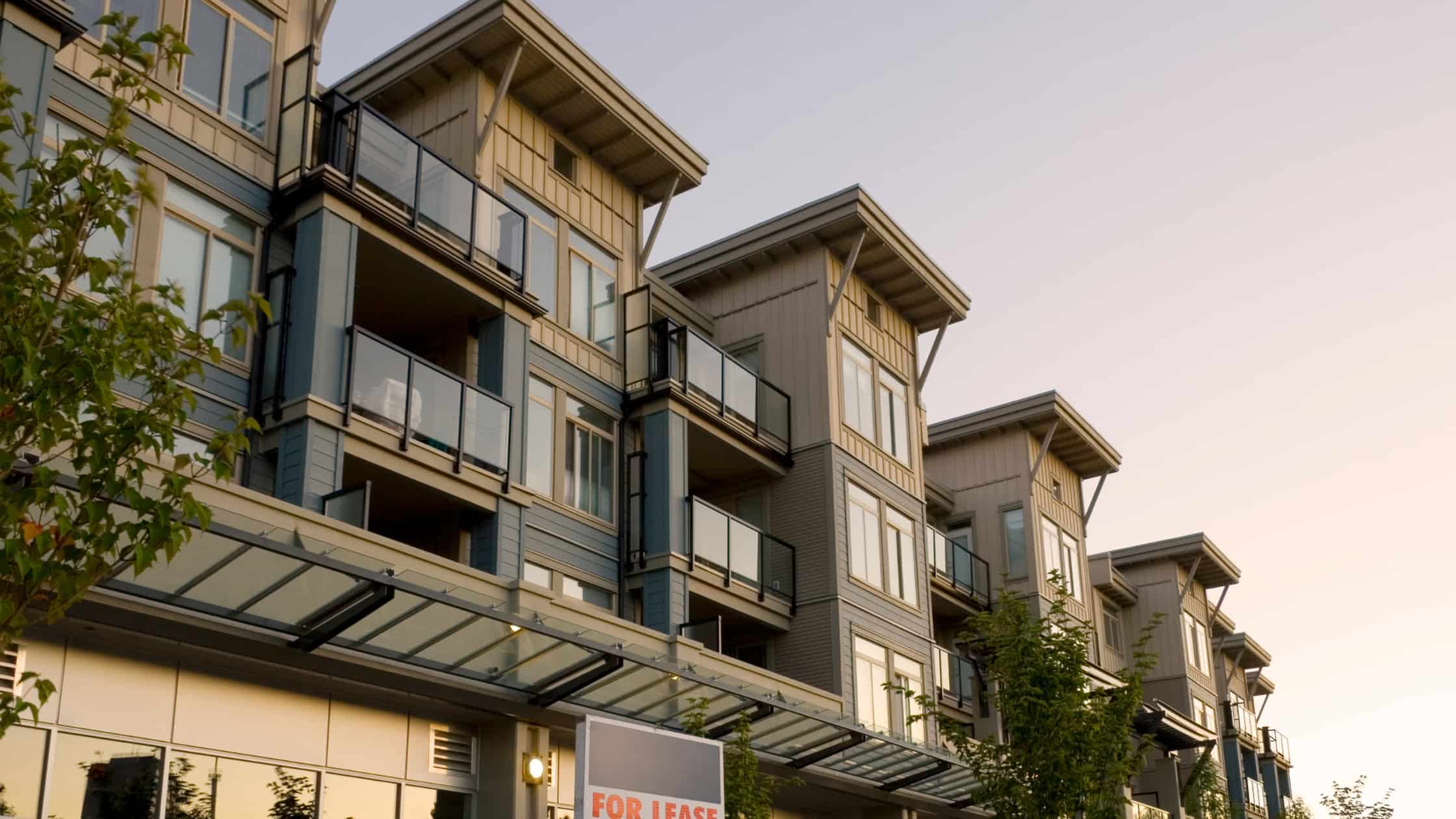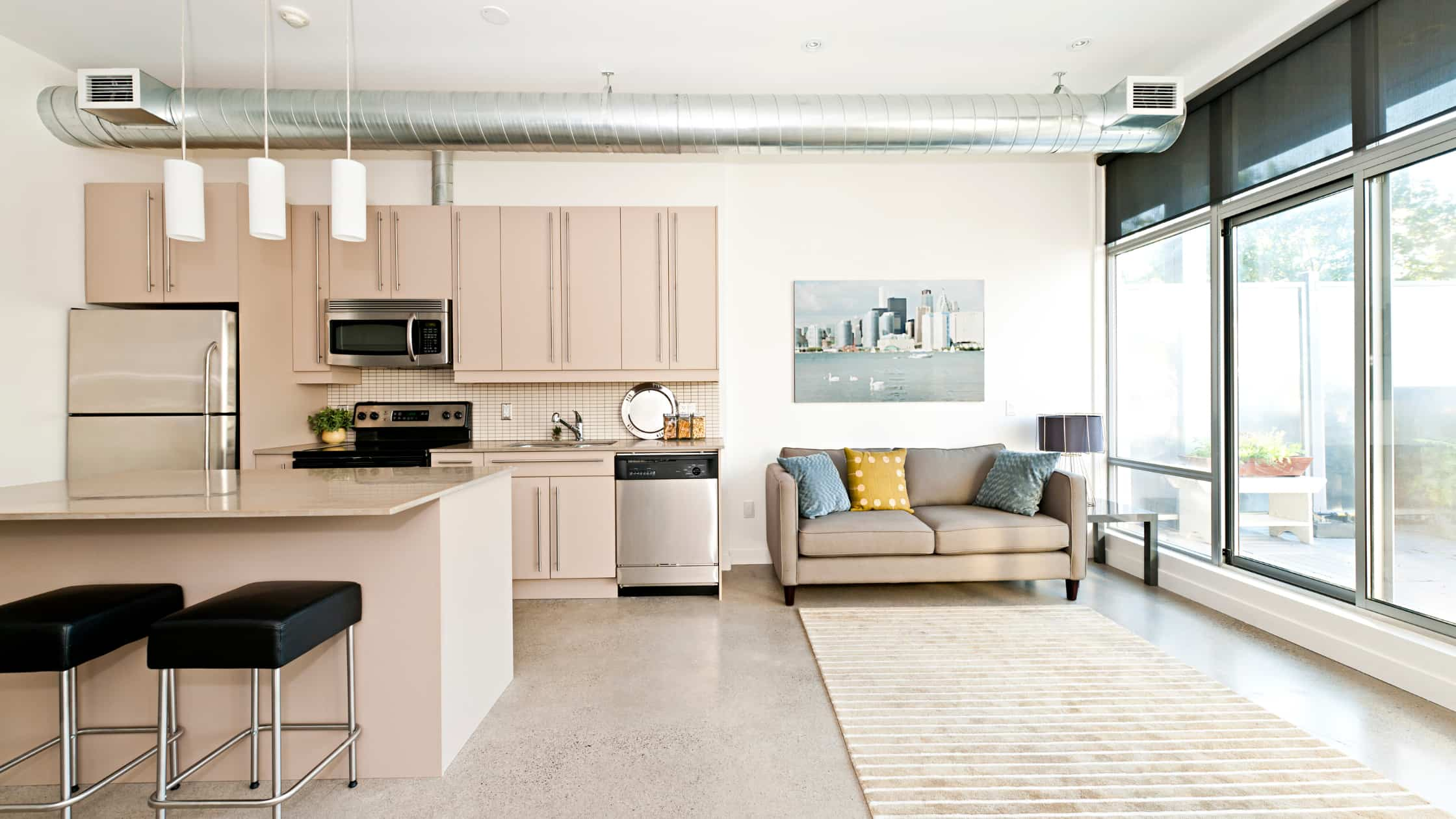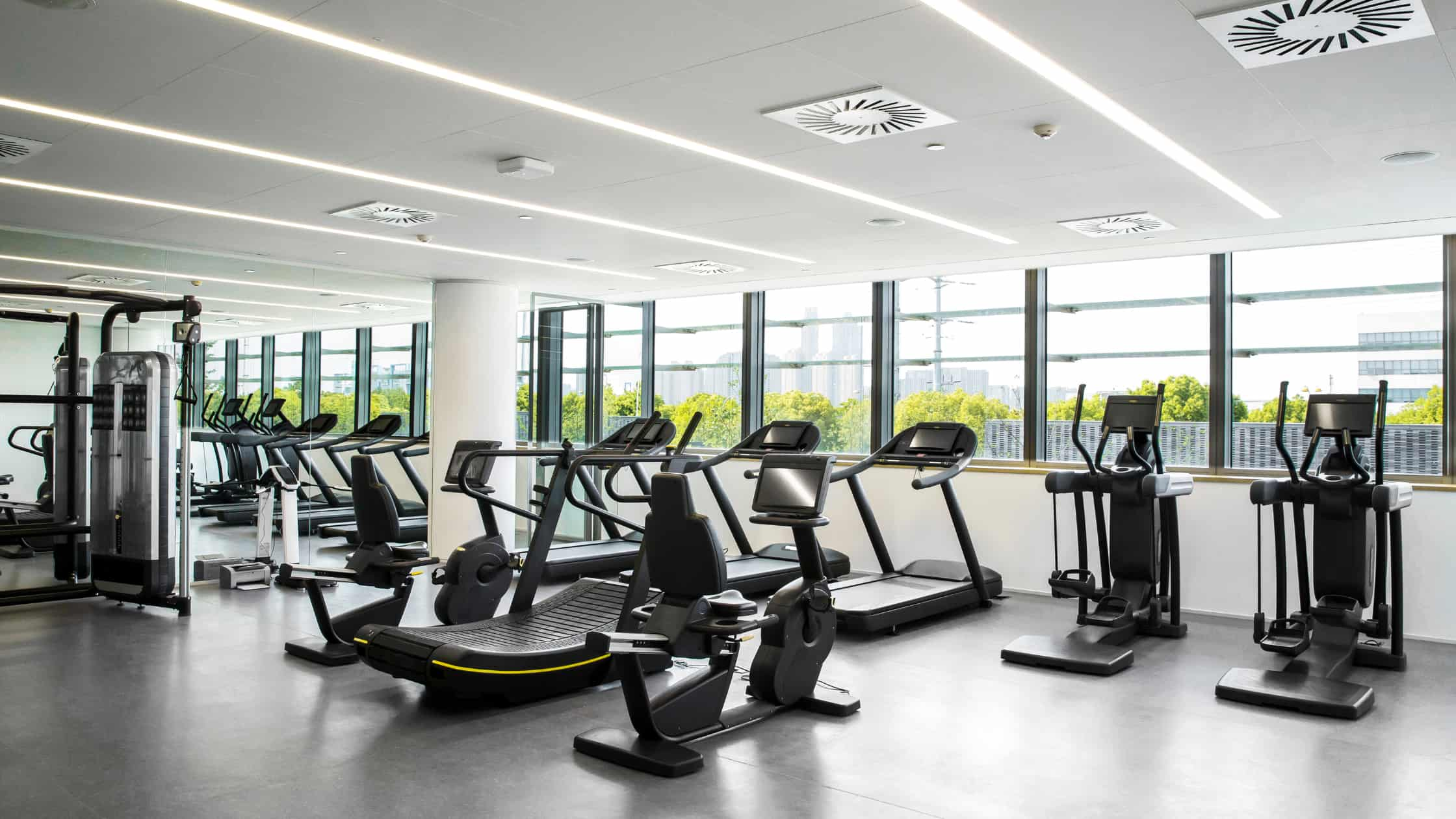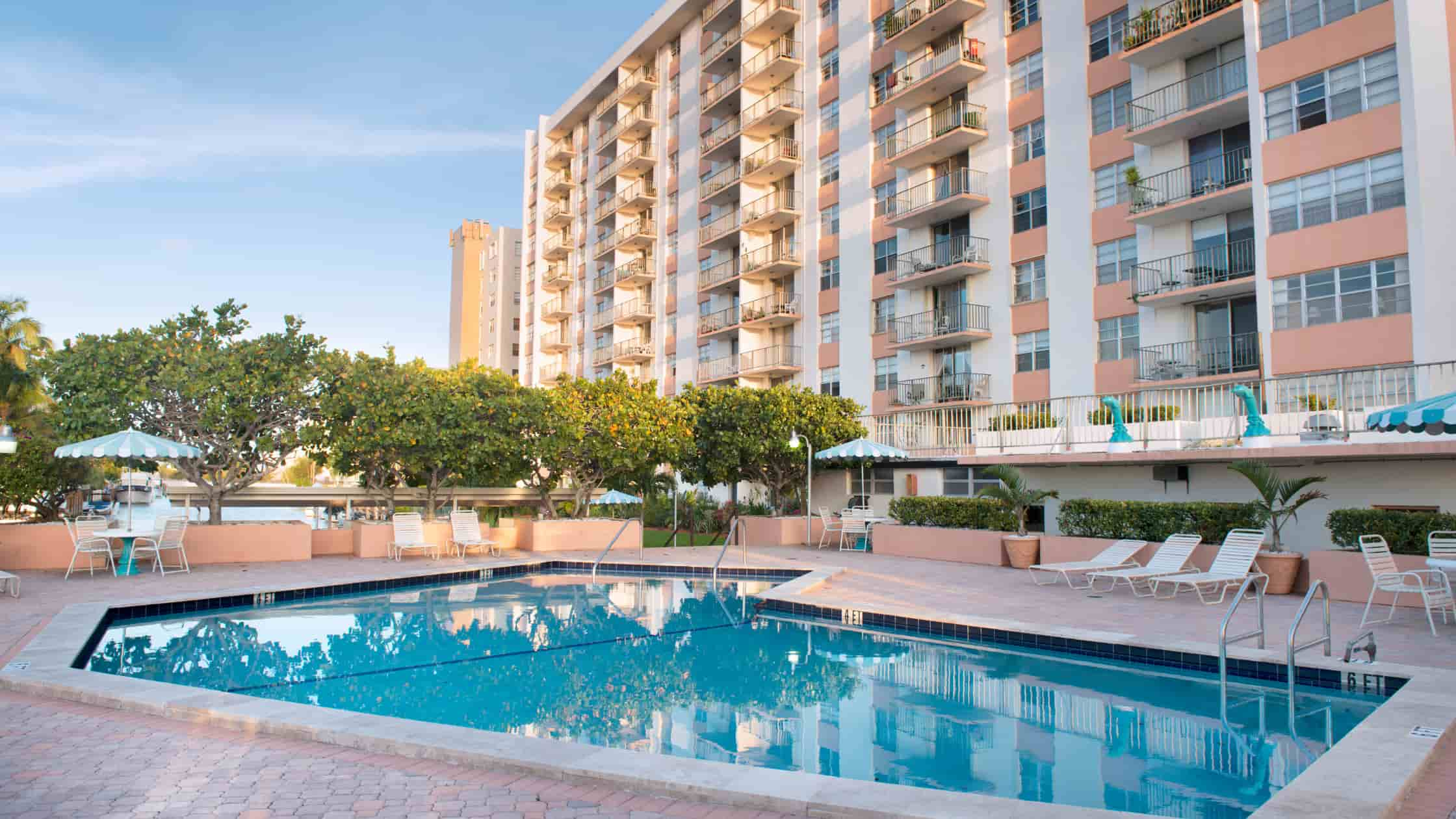
Pros and Cons of Buying a Condo in Colorado – Is It Right for You?
Are you standing at the crossroads of homeownership, eyeing those gleaming condo buildings with a mixture of excitement and hesitation? You’re not alone. Whether you’re a first-time buyer, looking to downsize, or considering an investment property, understanding the full picture of condo ownership is essential before signing on the dotted line.
According to the latest data from the National Association of Realtors, the median price of existing condominiums and co-ops increased by 4.0% to $320,000 in 2024, compared to a 6.1% increase for single-family homes (reaching $409,300). This price difference makes condos an attractive option for many buyers, but the decision involves much more than just the purchase price.
If you’re considering buying a condo and want more information, reach out to JROC Properties today! Our team of experienced real estate professionals can help you navigate the market and find the perfect condo that suits your lifestyle and budget.
Also Read:
Table of Contents

Introduction to Buying a Condo
When exploring the real estate market, you’ll encounter various property types, but what defines a condo goes beyond just an apartment you can purchase. A condominium represents a unique form of property ownership where you own your individual unit within a larger complex or building, while simultaneously sharing ownership of common areas with other residents.
Unlike apartments, which are leased from a landlord, buying a condo means you’ll have a deed to your specific unit. You own the interior space or “air space” of your unit, while the exterior structure, land, and shared facilities are owned collectively by all unit owners.
Condos in the Current Real Estate Market
The condo real estate segment has evolved significantly in recent years. Market data reveals interesting regional variations in condo performance:
In Denver, Colorado, the condo market faced challenges in 2024. The average condo sale price decreased by 6.3% to $389,651, and the median price dropped by 12.3% to $329,000 compared to 2022. This decline contrasts with the area’s five-year average annual appreciation rate of 5.6%
Meanwhile, investor activity has shifted nationwide. According to Redfin data, investor purchases of single-family homes rose 6.7% year-over-year in Q2 2024, while investor purchases of condos fell 3.3% during the same period. This shift reflects changing market dynamics that potential buyers should consider

Pros of Buying a Condo
One of the most compelling advantages of owning a condo is the relative affordability compared to single-family homes. The current price gap of approximately 22% ($320,000 vs. $409,300 nationally) makes homeownership more accessible for first-time buyers or those with budget constraints.
Beyond the initial purchase price, condos often deliver cost efficiencies through shared infrastructure. When major expenses arise, like roof repairs or exterior painting, these costs are distributed among all owners through the HOA fees rather than falling solely on your shoulders.
Low Maintenance Lifestyle
For many condo owners, the reduced maintenance responsibility represents one of the most significant benefits. The HOA typically handles exterior maintenance, landscaping, snow removal, and repairs to shared systems, freeing you from weekend chores and seasonal maintenance tasks.
This advantage particularly resonates with specific buyer demographics:
- Busy professionals: Those working long hours or traveling frequently can maintain homeownership without sacrificing precious free time
- Retirees and empty nesters: Aging homeowners can eliminate physical demands while remaining in their preferred neighborhood
- First-time homeowners: Those without experience in home maintenance can transition gradually to homeownership responsibilities
Access to Amenities and Facilities
Many condo communities offer facilities that would be prohibitively expensive for individual homeowners: swimming pools, fitness centers, clubhouses, tennis courts, and concierge services in luxury buildings.
The value proposition becomes even more evident when comparing amenity costs:
- A private pool installation can exceed $50,000, with annual maintenance of $3,000-5,000
- Monthly gym memberships average $40-100 per person
- Private security systems can cost thousands to install plus monthly monitoring fees
Security Features and Peace of Mind
Security represents another compelling advantage of condo living. Many communities feature secured entry systems, doormen, surveillance cameras, and security personnel. These multi-layered security measures would be costly to implement in a single-family home.
For owners who travel frequently, condos offer additional security advantages. The “lock and leave” convenience without concerns about vacant-home appearance, mail accumulation, or maintenance issues makes condos particularly suitable for those with mobile lifestyles or who own multiple residences.
Prime Locations and Urban Living
Location advantages represent significant benefits of buying a condo. Developers typically selectprime urban or suburban locationsfor condo projects, areas where single-family homes might be scarce or prohibitively expensive.
Urban condo locations often score higher on walkability indexes, supporting healthier, more sustainable lifestyles. The ability to access restaurants, shopping, and cultural attractions without driving improves daily living while potentially reducing transportation expenses.
Potential for Investment and Equity Growth
While national trends show single-family homes appreciating at slightly higher rates (6.1% vs. 4.0% for condos), local markets tell a different story. In San Francisco, the median capital gain for investorssellingcondos in June 2024 was $685,500, a 50.7% increase from the previous year. Similarly, San Jose saw a 48.3% rise in median investor gains for condos, reaching $808,500.

Cons of Buying a Condo
The most significant disadvantage of condo ownership is the unavoidable HOA fees. Current data shows significant regional variation in these costs:
Denver: $360 per month
Aurora: $263 per month
Lakewood: $250 per month
Littleton: $275 per month
Centennial: $300 per month
Englewood: $280 per month
Thornton: $240 per month
Westminster: $230 per month
Broomfield: $260 per month
Commerce City: $220 per month
The national median HOA fee is approximately $290 per month. Unlike your mortgage, which remains fixed if you choose a fixed-rate loan, HOA fees can increase annually and occasionally require special assessments for major repairs or improvements.
Recent data indicates that91% of community associations reported unexpected increases in expenses due to inflation and rising costs in 2023, with 71% of community managers and HOA board members planning to increase fees in 2024.
Rules, Regulations, and Loss of Autonomy
HOAs establish and enforce rules covering everything from noise levels to holiday decorations, rental permissions, and even window coverings visible from the outside. While these regulations help maintain community standards, they can feel restrictive.
Recent surveys reveal that 57% of people who live under HOAs say they don’t like it, with restrictions on exterior home improvements being cited as one of the worst aspects by 17% of residents.
Limited Privacy and Shared Spaces
Proximity to neighbors creates inevitable sound transmission issues. Despite building codes addressing sound insulation, conversations, footsteps, and everyday activities often remain audible between units.
Common spaces, while beneficial in many ways, also introduce privacy considerations. Pool areas, elevators, hallways, and lobbies mean encountering neighbors during moments when you prefer anonymity.
Restrictions on Modifications and Resale
While you typically have the opportunity to modify interior spaces(though sometimes requiring HOA approval), exterior alterations are heavily restricted. Window replacements, balcony modifications, or even door color changes often require approval and must conform to building-wide aesthetic standards.
Resale complications represent another concern. Your property’s marketability depends not just on your individual unit but on the entire complex’s condition, financial stability, and reputation. A poorly managed HOA, underfunded reserves, or high percentage of rental units can make securing financing difficult for potential buyers of your unit.
Limited Land Ownership and Space Constraints
A fundamental difference involves land ownership. When purchasing a condo, you acquire no direct ownership of land, a traditionally valuable component of real estate investment. Historical data shows that land appreciation often outpaces structure appreciation in many markets.
Space limitations affect daily living as well. The average condo unit is significantly smaller than the typical single-family house, impacting storage options, entertaining capacity, and flexibility for changing life circumstances.

Comparing Housing Options: Making the Right Choice for Your Situation
Feature | Condo | Single-Family Home | Townhouse |
National Median Price | $320,000 | $409,300 | $355,000 |
Annual Appreciation (2024) | 4.0% | 6.1% | 5.2% |
Average Monthly HOA Fees | $290 | $0-50 | $150-200 |
Maintenance Costs (Annual) | 0.5-1% of value | 1-4% of value | 1-2% of value |
Insurance Costs (Annual) | $300-600 | $1,000-1,800 | $700-1,200 |
Owner Control Over Property | Limited | Complete | Moderate |
Typical Size (Sq. Ft.) | 800-1,500 | 1,800-3,000 | 1,400-2,200 |
Outdoor Space | Limited/Shared | Private Yard | Small Private Area |
Buyer Personas: Who Benefits Most from Condo Living?
The Urban Professional
Profile:Career-focused, values convenience and location over space, limited time for maintenance, enjoys social amenities Benefits:Prime urban location, amenities that complement busy lifestyle, lock-and-leave security, potential for strong appreciation in employment hubs Advice:Focus on buildings with strong owner-occupancy rates and robust reserves; consider units with dedicated office space for remote work flexibility
The Active Retiree
Profile:Looking to downsize, values social connections, wants to reduce maintenance responsibilities, may travel frequently Benefits:Single-level living, community engagement, predictable monthly expenses, security when traveling Advice:Prioritize buildings with elevators, accessible design, and financially stable HOAs with minimal extraordinary assessment history; consider proximity to healthcare and cultural amenities
The First-Time Homebuyer
Profile:Limited budget, seeking to build equity, values urban amenities, may plan to upgrade within 5-7 years Benefits:Lower entry price point, reduced maintenance concerns, ability to live in desirable neighborhoods otherwise unaffordable Advice:Focus on units with strong resale potential; avoid buildings with high investor ownership percentages; evaluate HOA financial health carefully
The Real Estate Investor
Profile:Seeking rental income or appreciation, prefers passive management, may own multiple properties Benefits:Easier property management, HOA handles exterior maintenance, potentially strong rental demand in urban centers Advice:Thoroughly research rental restrictions before purchasing; analyze the ratio of HOA fees to potential rental income; consider properties in emerging neighborhoods with planned development

Is a Condo Right for You? A Decision Framework
Rate each statement from 1 (Strongly Disagree) to 5 (Strongly Agree):
- I value location and amenities over having a large living space
- I prefer spending my free time on activities other than home maintenance
- I’m comfortable with community decision-making that may affect my property
- I can budget for potential HOA fee increases and special assessments
- I don’t mind having neighbors in close proximity
- I rarely make substantial changes to my living environment
- I value security features and wouldn’t mind living in a controlled-access community
- I prefer predictable monthly housing expenses over occasional large repair bills
- I don’t need extensive outdoor space or gardening opportunities
- I enjoy social interactions and community amenities
Scoring:
- 40-50: You’re an ideal candidate for condo living
- 30-39: Condo living would likely suit you with some adjustments
- 20-29: Consider your priorities carefully; a townhouse might be a better compromise
- 10-19: Single-family home ownership would likely better match your preferences
Key Considerations Before Buying a Condo
When evaluating a specific condo, examine these critical factors:
1.) Financial Health of the HOA
- Request and review at least 2 years of financial statements
- Check reserve fund adequacy (ideally 70-100% funded)
- Review the history of special assessments and fee increases
2.) Community Governance and Culture
- Read board meeting minutes from the past year
- Review rules and regulations for restrictiveness
- Talk with current residents about the community atmosphere
3.) Physical Condition Assessment
- Review the reserve study for upcoming major expenses
- Inspect common areas and amenities for maintenance quality
- Consider building ageprimarymajor system replacement timelines
4.) Lifestyle Alignment
- Evaluate building demographics against your prefer.ences
- Consider noise levels at different times of day
- Assess amenities against your actual usage patterns
Common Reasons for Condo Owner Regret
Recent homeowner surveys have identified these top sources of dissatisfaction:
- Maintenance costs and unexpected expenses: Nearly half (47%) of homeowners who felt regret about their purchase said they underestimated how much they would spend to live in and maintain their home
- Rushed decision-making: Over 1 in 4 (26%) homebuyers felt remorse over how quickly they sped through the home-buying process
- HOA restrictions and rules: 57% of people who live under HOAs say they don’t like it, with restrictions on exterior home improvements being cited as one of the worst aspects by 17% of residents
- Size or layout of the home: Around 30% of millennial homebuyers felt their home was not the right size
- Location issues: 15% of millennial respondents said they disliked their property’s location
Concluding Thoughts
The decision to purchase a condo involves weighing multiple factors against your priorities, financial situation, and lifestyle preferences. While condos offer compelling benefits, they also come with trade-offs in autonomy, additional fees, and potential space constraints.
By thoroughly researching specific properties, understanding the financial implications, and honestly assessing your lifestyle needs, you can determine whether condo ownership represents the right next step on your property journey. The perfect housing choice isn’t universal, it’s the one that best aligns with your unique circumstances and priorities.
Are you ready to find the perfect condo that suits your lifestyle? Whether you’re a first-time buyer or looking to downsize, JROC Propertiesis here to help. Contact us today to start your search and unlock the door to your new home!

